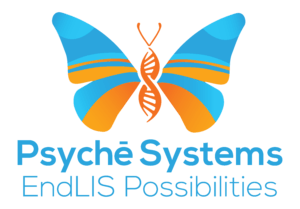Genetics has always been an exciting field. Recently, though, the possibilities have grown more than most people would have imagined. Today’s researchers have seen a lot of innovative changes in the world of genetics, including the possibilities in molecular genetics software.
As a clinical laboratory owner, you may have observed some of these changes in the molecular genetics world. Want to dive deeper into what these changes may mean for your laboratory? Are you ready to expand your own laboratory’s capabilities? In that case, let’s take a closer look at the future of genetics software and the ability to program biological cells.
Today’s Molecular Genetics Software
Today’s molecular genetics software capabilities are already showing enormous promise. One can use this type of software to isolate and observe DNA differences, examine how those DNA differences show up in various phenotypes, and more. We’ve even been able to induce and report on genetic mutations for years now, with a lot of big leaps happening within the past fifteen years.
These results are revealing themselves in biotechnology and bioengineering. Researchers use their molecular genetics options – and the software that goes with them – to address food shortages, develop vaccines and drugs, and open up new avenues of research. One day, thanks to this research and software, removing genetic disorders entirely could become a commonplace medical treatment.
The Future of Molecular Genetics Software
With so many steps forward, the present can sometimes feel like the future. Nevertheless, molecular genetics software is still moving forward. Molecular genetics is a rapidly-growing field, and as a result, today’s software has to keep up with tomorrow’s discoveries.
As a matter of fact, genetics as a whole is growing, and many startup labs have found their place in the genetics research market. Much of this growth is happening because of general public interest. What used to be solely the domain of scientists is now a big source of interest in the general public. For example, people have turned to genetic testing laboratories to unlock answers about their ancestry from their DNA.
Molecular genetics, of course, has grown and will keep growing alongside the field of genetics in general. While much of the research thus far has concerned bacterial genetics, we’ll likely see increasing growth in the field of human molecular genetics.
What Does This Mean for Your Lab?
Molecular genetics software is more capable these days than it has ever been in the past, so what does this mean specifically for your lab? If you want to expand your laboratory’s molecular genetics testing capabilities, or even if you just want to make your existing molecular genetics processes more efficient, you’ll need to take several things into consideration when it comes to your laboratory software.
The Unique Workflow of Molecular Genetics
As a unique branch of the genetics field, molecular genetics requires unique workflows. This is true for the branch in general, but it’s also true for your laboratory in particular. Each laboratory has its own pace and organizational system.
If you’re looking for new laboratory software – especially if you’re looking for molecular genetics software – then you’ll need software that supports your lab’s particular workflows. Otherwise, you risk unnecessary delays in your testing and research.
Flexibility to Meet Growth
Because there’s so much growth in the field, and because that growth will continue into the future, your laboratory software should provide enough flexibility to adapt. Every new discovery in the molecular genetics field means a leap forward for genetics labs everywhere. Can your current software keep up with this potential?
For that matter, your molecular genetics software should be affordable enough for you to make changes when you need to.
Seamless updates play a big role in this flexibility, too. The “stop and start” nature of some software upgrades can slow down your research. When you need efficiency to keep up with the field, these types of upgrades can hurt your laboratory’s potential. As you research potential molecular genetics software for your lab, pay careful attention to how the company implements upgrades.
Comprehensive Reporting
A comprehensive field requires comprehensive reporting, and that means your molecular genetics software will have to keep up with these reporting needs. Does your current software support comprehensive reporting? Could your software support more complex reporting as the need arises and the research evolves?
Simple Instrument Integration
Your molecular genetics software should also support simple instrument integration. Again, the key is flexibility. Molecular genetics uses a wide array of instrumentation, much of which you may already have in your lab. For your lab to become or remain effective in the world of molecular genetics, any new software you use should integrate with your machinery quickly.
nucleoLIS Ē.finity from Psychē Systems
nucleoLIS Ē.finity from Psychē Systems meets the above criteria for molecular genetics software. It covers a range of functions, including:
DNA sequencing
PCR
FISH
Karyotyping
Immunology
Other laboratory-defined tests
It’s ready to mesh with your specific workflows, and it integrates simply into your existing workflows, so your laboratory can adapt easily to the new software without any unnecessary delays to your work.
nucleoLIS Ē.finity also makes comprehensive reporting simple. Overall, this software is designed to help you streamline and simplify your genetic and molecular testing processes.
Psychē Systems
Psychē Systems, the creator of the nucleoLIS Ē.finity software, is no stranger to innovation. We’ve delivered specialty LIS software for decades, and our client support system is unmatched. We’re there for our clients at every step.
Psychē Systems provides affordable laboratory software without compromising on quality. In fact, we also offer complete customization so that you can build your LIS to your own specifications. Whether you’re looking for a cloud-based system, an on-premises system, or a hybrid, we can help you build the software system that works best for your laboratory testing needs.
Start building your LIS now, or take a look at our products to get a better idea of what they can do.

